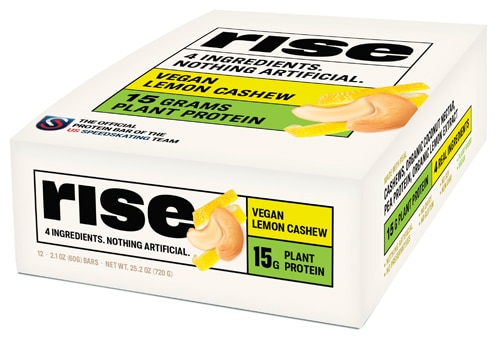Food is complicated. Nutrition science can hang in the boxing ring with rocket science any day. By default, this makes eating and eating habits feel complicated. Factor in that eating habits go far beyond the macros, bioavailability of nutrients and phytochemicals. They dive right down to science of the mindset of how we choose to perceive food. The complexity can be enough to make you want to forfeit – but we’ve got your back! So, next time you're thinking, "what should I eat?", consider these five mind-focused eating habits, according to a dietitian, that will transform you into a nutrition mastermind.
1. Resist Thinking of Foods as Good or Bad
There’s a tendency to want to designate foods as one or the other rather than live by the mantra of “I should only eat foods that are good.” This leads down a wormhole of projecting feelings about food onto yourself. How often have you heard someone say, “I was so bad, I ate [insert dessert item]!” Rest assured, eating dessert does not affect your moral fiber (food pun).
Classifying foods as good or bad over simplifies nutritional complexity. In fact, there are many more layers to the food complexity onion (double food pun). Consider foods as complementary puzzle pieces to your lifestyle. Take jelly beans for example. Tempting to call this a bad food. What may be considered a sugar bomb for a trick-or-treater is a cost-effective energy burst for a bucket list marathoner in need of glucose to fuel the journey.
Result: The world is full of delicious foods. Now you can enjoy all of them.
2. Guilt is Not an Essential Nutrient
Feeling guilty about the foods you ate does no physiological benefit to your health. It doesn’t speed your metabolism, improve sleep, or allow you to better absorb nutrients. Save yourself the emotional bandwidth and learn to be comfortable with your choices. Thoughts about what to eat, what not to eat, and what you shouldn’t have eaten can take up enough mental energy to be damaging to aspects of balanced wellness.
Eat to the point of being so full it hurts? Chalk that up as a life lesson in learning to listen to your body and carry on. Challenge yourself to move beyond the notion that eating a “bad” food is a failure in willpower. You own the choices surrounding your eating habits. Empower yourself to enjoy delicious food without a side of guilt. You may find that when you stop labeling certain foods as something bad that you shouldn’t have, they become less of a crave-able delectable held on a pedestal and become simply a food choice like any other.
Result: You’re smart. Use the mental energy you save to do big things.
3. Be an Expert on the Topic of You
Ever feel like the universe floods you with info on exactly what, when and how you should be eating? There is a universal expert on you and your health that is never consulted on this. It’s you.
Examples of externals cues about when and how to feed your body are: a big plate at restaurant that holds more than a larger volume of food than you would serve yourself, a TV show that distracts you from tasting and enjoying your food, a group of co-workers who all choose to skip lunch, a busy day of errands without easy access to water or time to stop for a meal, a doting family member who makes a plate for you at a holiday, an article online that tells you to never eat certain foods, or a friend that swears by their new diet and wants you to join along. They are everywhere.
It can be easy to default to these nudges to eat in a way you did not actively choose. One of the most challenging changes in eating habits can be looking to yourself to decide when and how much to eat instead of letting your environment make that choice for you. Make yourself a priority and learn to check in with your body. Every few hours stop and ask, “Am I hungry? How hungry?”, “Am I thirsty?” Then, act accordingly.
Your body often has a difficult time telling you what it needs because it is competing with the whirlwind of a world happening around you. Learn to eat and drink things in amounts based on what your body tells you it needs.
Result: You empower your nutrition success on your terms and taste buds.
4. Eating Healthfully Doesn’t Have to Mean Suffering
Somewhere along the line, the word “healthy” developed a rep synonymous with daily hours at the gym pouring sweat, buckets of kale and celery sticks, a life devoid of anything tasty, and a general lack of fun. Don’t believe the hype. This is not what healthy needs to look like.
“Healthy” is like a fingerprint. Unique to you. The one thing everyone’s health has in common is it doesn’t require a life of total rigidity and self-sacrifice to get there. This holds true for eating habits. Eating well does not require only eating things you hate. Don’t like broccoli? No worries. There are plenty of other vegetables in the garden. An open mind to try new foods and new ways of preparing foods can open a world of delicious possibilities for balanced nourishment.
Result: You didn’t sacrifice happy to become healthy.
5. Focus on Your Food
MYOB? More like MYOP. Mind your own plate. Challenge yourself not to eat something (or eat something) because it’s what everyone around you is doing. You don’t need a second helping when everyone else is having one but you’re full, and you don’t need to order a salad at lunch with co-workers because everyone is ordering a salad.
This is one of the toughest habits to develop. Comparison is a thief of joy and balanced eating habits. This is a two-way street. Avoid mindlessly mimicking eating habits around you but also avoid weighing in on what others are eating. Judging the food choices of others is detrimental to your own nutrition success and the success of others.
Result: You feel good about what you eat and let others feel good about what they eat.




